Interpreters, clients, platforms, and volume
Now to look at the current landscape of remote interpreting and interpreters.
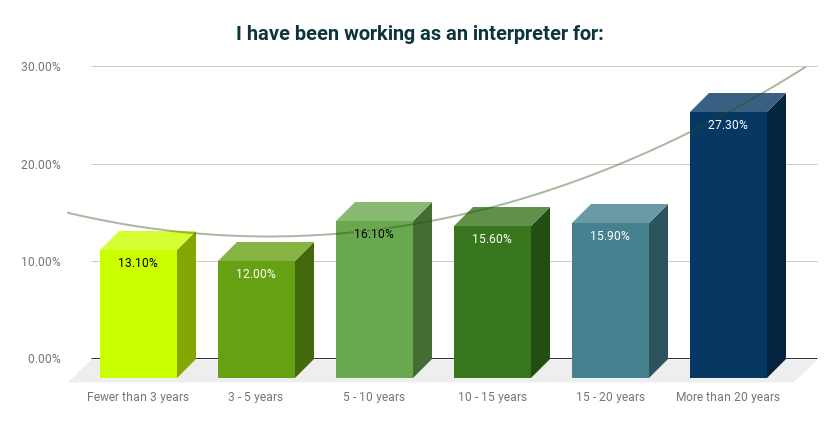
First, there is a healthy distribution of professionals in terms of how many years they have been in the industry. You don’t have professionals bunching up on any point of the spectrum, which would be an indicator of either a poor incoming flow of new professionals or an abandonment of veterans in the profession, for example. My guess is that if we were to ask in a year or so, that initial group of “new” interpreters will have grown noticeably, however.
Of the 66% of interpreters who offer interpreting through remote interpreting platforms, most are doing so via more than one platform. The most common reason behind this is the interpreter seeking to ensure a certain volume of work-- and 78% of interpreters would do more interpreting work if it were channeled their way.
Of those providing their services through more than one platform, around 30% at least occasionally set themselves as active or available on more than one platform at a time in order to ensure better incoming work volume.
Similarly to the use of translation management systems (TMS) for translation, platforms which facilitate and manage remote interpreting services are productivity boosters for both the client and the service provider, but, similarly to what happens in translation, some of this efficiency is lost on the service providers’ end when they are required to learn, be proficient, and be present in multiple platforms.
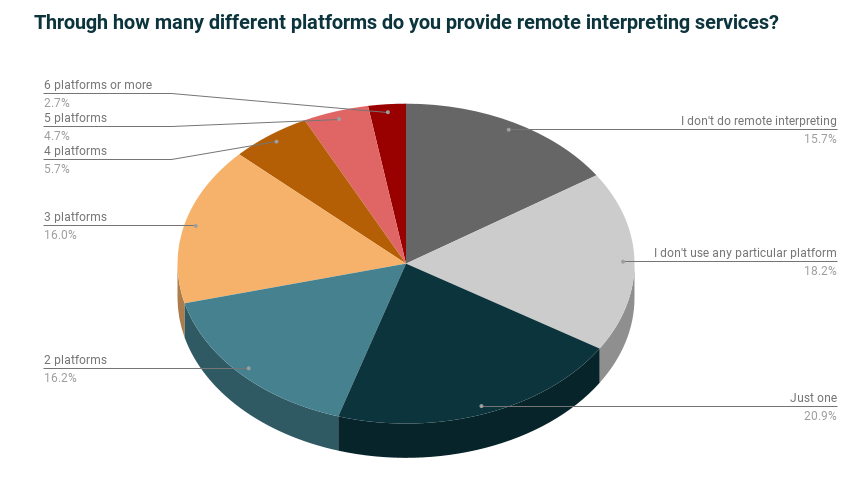
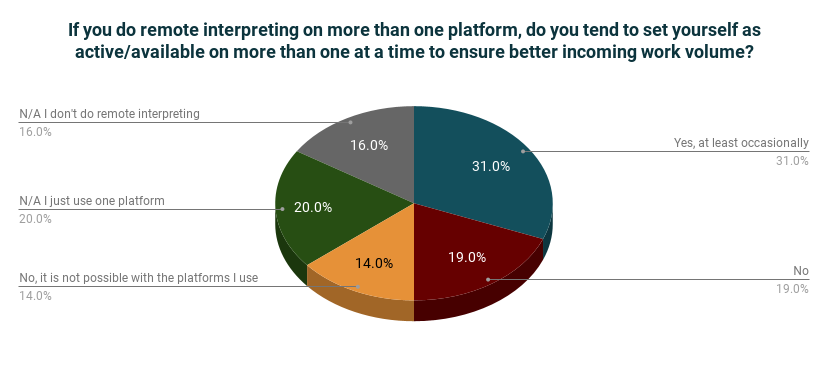
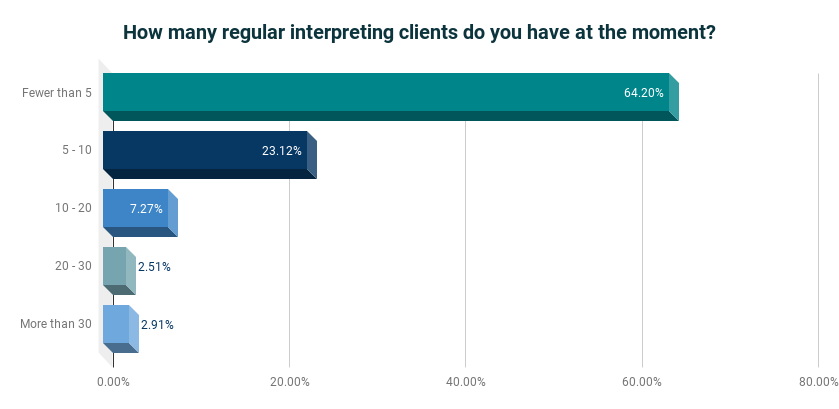
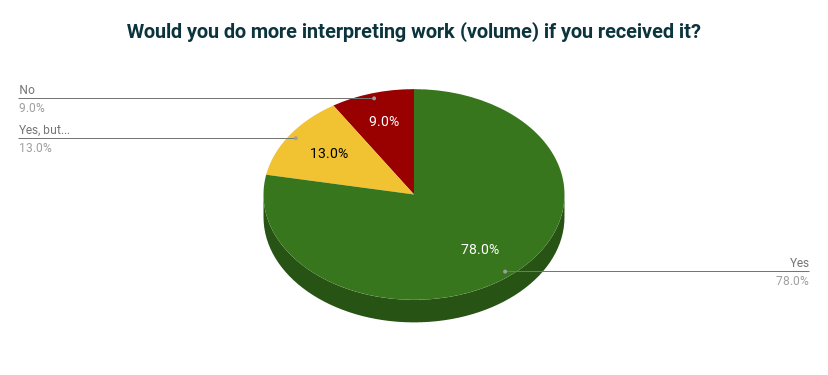
Concerns
If you ask an interpreter what concerns them most at the moment, you are likely to get a response that includes one or more of the following:
- Getting more work/clients (44%)
- Downward pressure on rates (25%)
- Advances in tech which are changing how work is done (10%)
- Keeping up professionally, maintaining quality (10%)
- Having more time for myself/my family (7%)
- Having more time for work (4%)
- And also…
These concerns are common to translation work as well, and to freelancers in all industries in general at the moment.
One concern which was mentioned frequently among interpreters and which is unique to interpreters, was the impact of poor or variable sound quality in remote interpreting, especially in the context of remote simultaneous interpreting (RSI). This is an issue which is frequent enough that at least 5% mentioned it, and it is an issue which impacts not only the quality of the service one can provide, but also potentially the health of at least the provider of the service, so it is worth noting here.
If we look back at that list of interpreter concerns, there is a good deal of interplay between concerns numbers two, three, and four.
Downward pressure on rates is not new, and is not exclusive to interpreting, nor is it exclusive to the language services industry. The language professionals who are doing the best in confronting this challenge tend to be those who have specialized and also invested in that specialization in various ways, thereby being able to provide better quality services more efficiently. They differentiate themselves as specialists, which makes them more attractive to clients, easier to screen, and also allows them to demand better rates than a generalist can expect.
And they are also staying on top of the tech advances which are either changing the way we work, or have the potential to change the way we work. Rather than rejecting all this technology outright, they put in the work to understand it, they leverage it in their favor in their work, and some are going as far as to specialize in certain tools and trends because it helps them work more efficiently and it also allows them to provide expert consultation to their clients on those tools and trends.
Having done this, they are also tending to get more new clients and more work, in general earning more, and they can focus more narrowly on resolving concerns of work-life balance…
This post comes from ProZ.com industry overview: (remote) interpreters in 2023. ProZ.com industry reports can be found at https://www.proz.com/industry-report/ . ProZ.com paying members receive immediate, full access to the information available in industry reports, which are about and for freelance language professionals.



